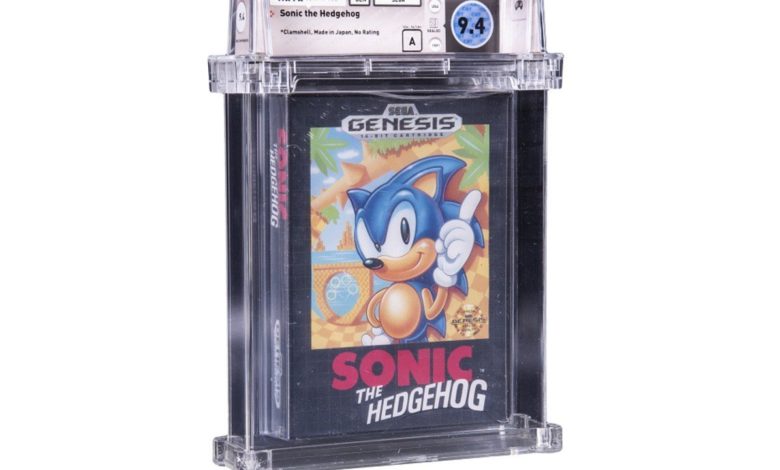Wata-certified Sonic game sells for $430k, former Sonic boss in shock
Former Sonic boss, Yuji Naka asks whether it's a scam. Many, including Karl Jobst, believe it is.

The phenomenon of retro video games selling at auctions for extremely high prices continues due to grading firm Wata Games. A Wata-certified copy of the original Sonic the Hedgehog just sold for $430k through Goldin Auctions. The news caught the attention of Yuji Naka, the former boss of SEGA’s Sonic the Hedgehog team. Naka took to Twitter to express his disbelief.
Naka also went on to ask, “Is it a scam?” His question was answered by numerous fans flooding the comments with journalist Karl Jobst’s video elaborating on the Wata Games scandal. However, Ken Goldin, owner of Goldin Auctions, defended the transaction and swore to its authenticity.
Naka San — we can assure you that this is a genuine sale to a real buyer on Goldin. Our customers trust us because all of our auctions are fair and for authentic items. We also vet all of our bidders on high end items such as this.
Ken Goldin
The Wata Games Scam
Regardless of Goldin’s defense, many believe, including Jobst, that the recent purchases of Wata-certified games are far from legitimate. The claim is that Wata is using their grading system to artificially inflate the prices of retro games.
In this particular instance, Wata gave this copy of Sonic a grade of 9.4. In their ten point system, Wata considers any score above a nine as an “investment grade.” They proclaim these highly rated games will increase in value over time.
However, Jobst argues labelling retro games as investments directly manipulates the second hand market. Additionally, Jobst has evidence that points to Wata Games colluding with the auction companies the games sell through.
Besides Goldin Auctions, Wata also works with Heritage Auctions. In 2019, a sealed copy of Super Mario Bros sold for $100,150 through Heritage Auctions. Of the three buyers involved, one of them was the co-founder of Heritage Auctions Jim Halperin.
In addition, Jobst elaborates on this claim in a video he posted to YouTube. In the video, he seeks to expose the companies involved in the inflated prices of retro games. You can hear Jobst’s full argument below.
Via Euro Gamer


 What's this
What's this